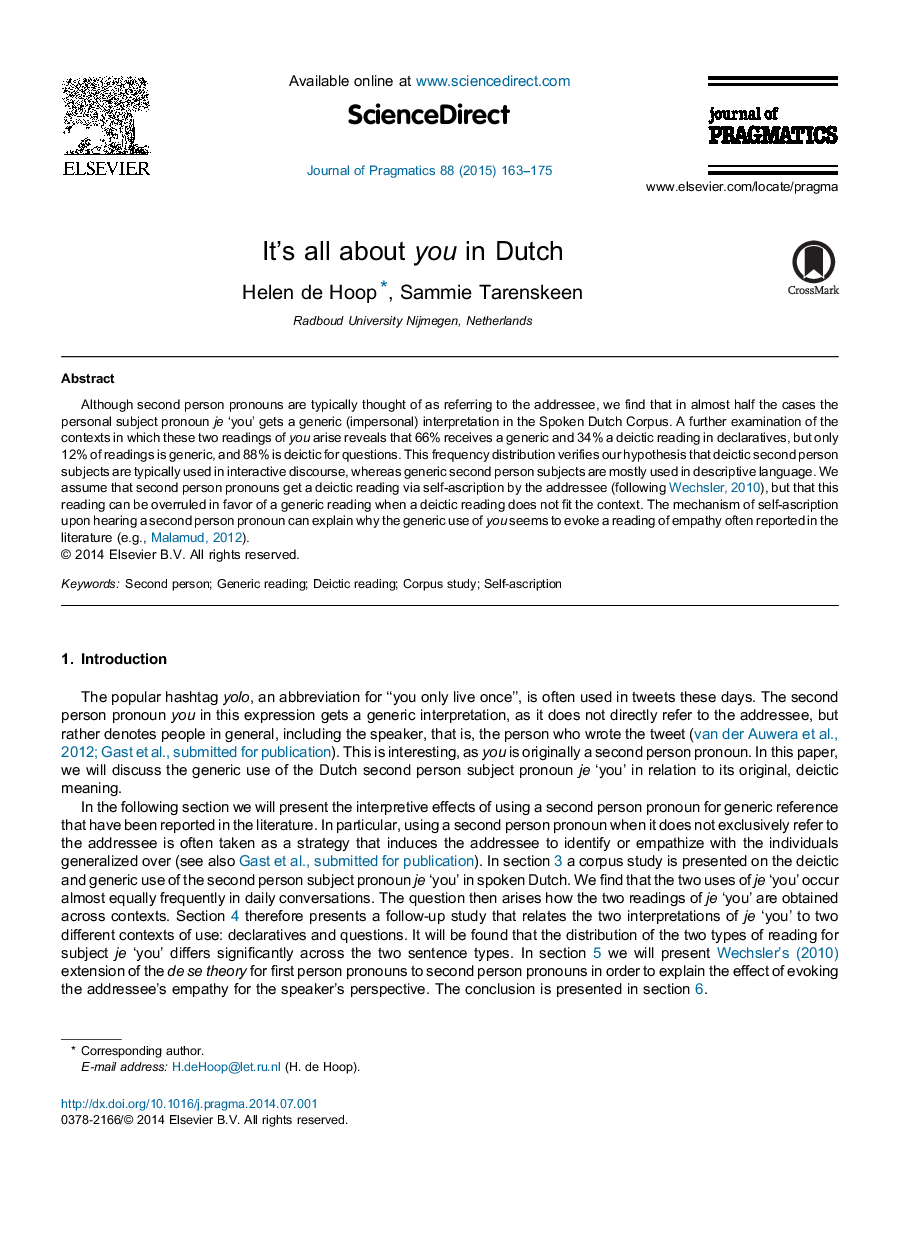| Article ID | Journal | Published Year | Pages | File Type |
|---|---|---|---|---|
| 932543 | Journal of Pragmatics | 2015 | 13 Pages |
Although second person pronouns are typically thought of as referring to the addressee, we find that in almost half the cases the personal subject pronoun je ‘you’ gets a generic (impersonal) interpretation in the Spoken Dutch Corpus. A further examination of the contexts in which these two readings of you arise reveals that 66% receives a generic and 34% a deictic reading in declaratives, but only 12% of readings is generic, and 88% is deictic for questions. This frequency distribution verifies our hypothesis that deictic second person subjects are typically used in interactive discourse, whereas generic second person subjects are mostly used in descriptive language. We assume that second person pronouns get a deictic reading via self-ascription by the addressee (following Wechsler, 2010), but that this reading can be overruled in favor of a generic reading when a deictic reading does not fit the context. The mechanism of self-ascription upon hearing a second person pronoun can explain why the generic use of you seems to evoke a reading of empathy often reported in the literature (e.g., Malamud, 2012).
